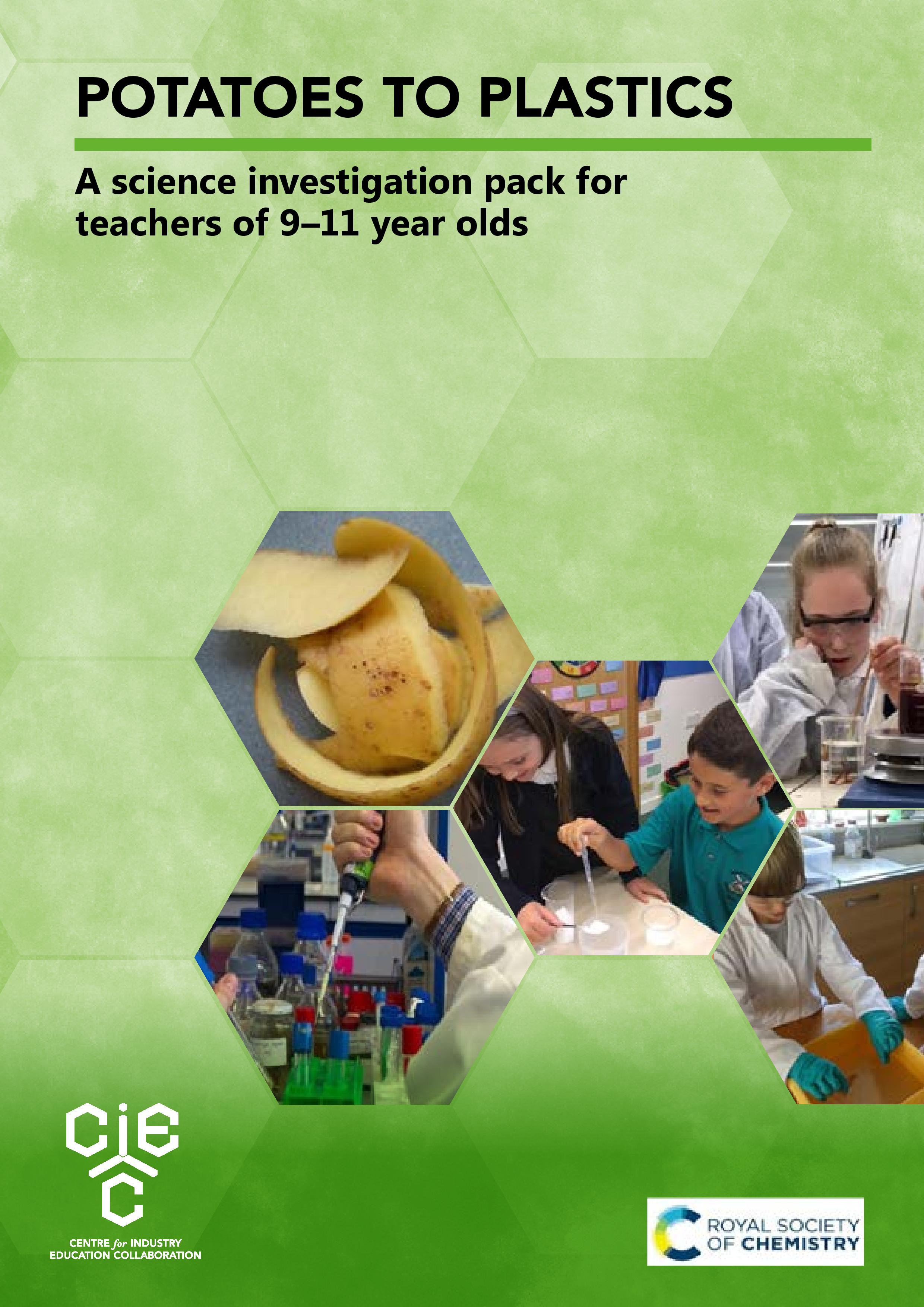CIEC's new publication: ‘Potatoes to Plastics’ shows upper key stage two (9-11 years old) children how science can be used to find solutions to environmental problems. In this case to create a useful product (bio-plastic) from waste (potato peel).
The resource contains practical and cross curricular activities including:
Three English activities designed to raise children’s science capital
Three practical activities where children make and test bioplastic using bioplastic
Three games played with downloadable cards which highlight science solutions to a range of waste products
Potatoes to Plastics Vocabulary (downloadable)
A list of the main vocabulary used in this resource which can be used to pre teach key words, support children to talk about their science, and for assessment.








-pages.jpg)